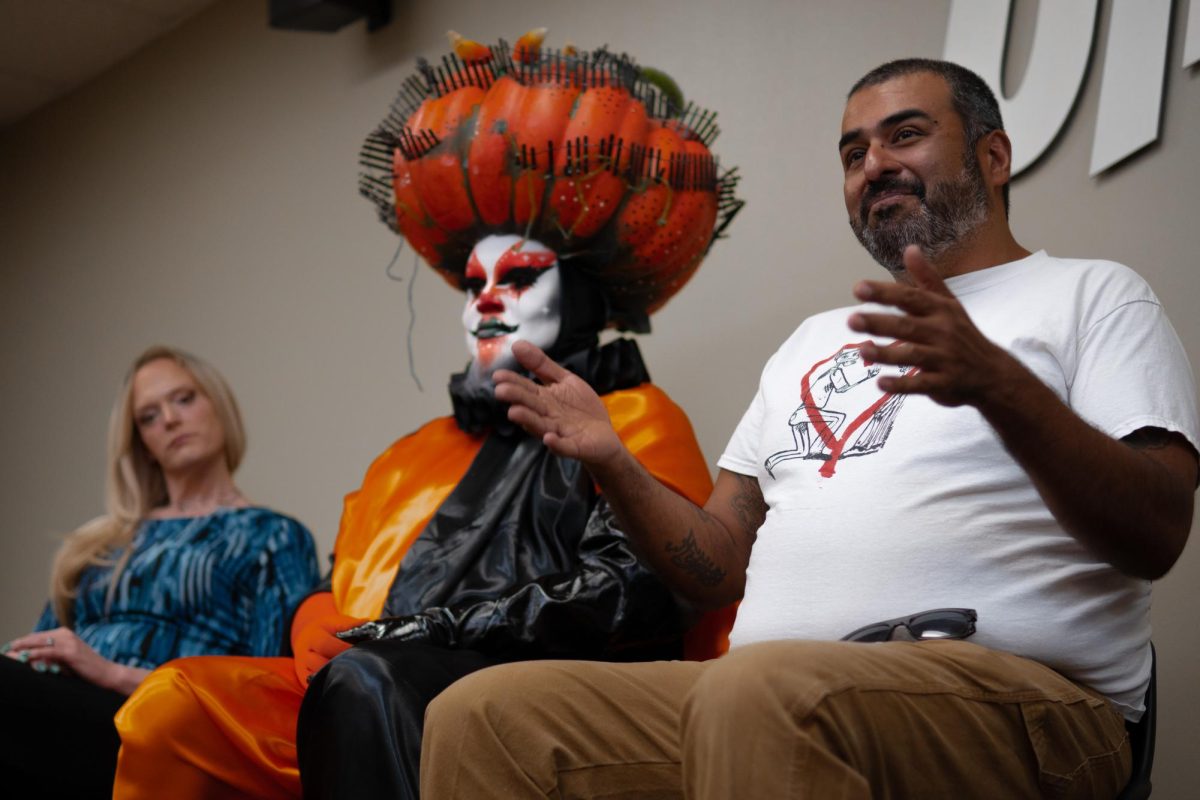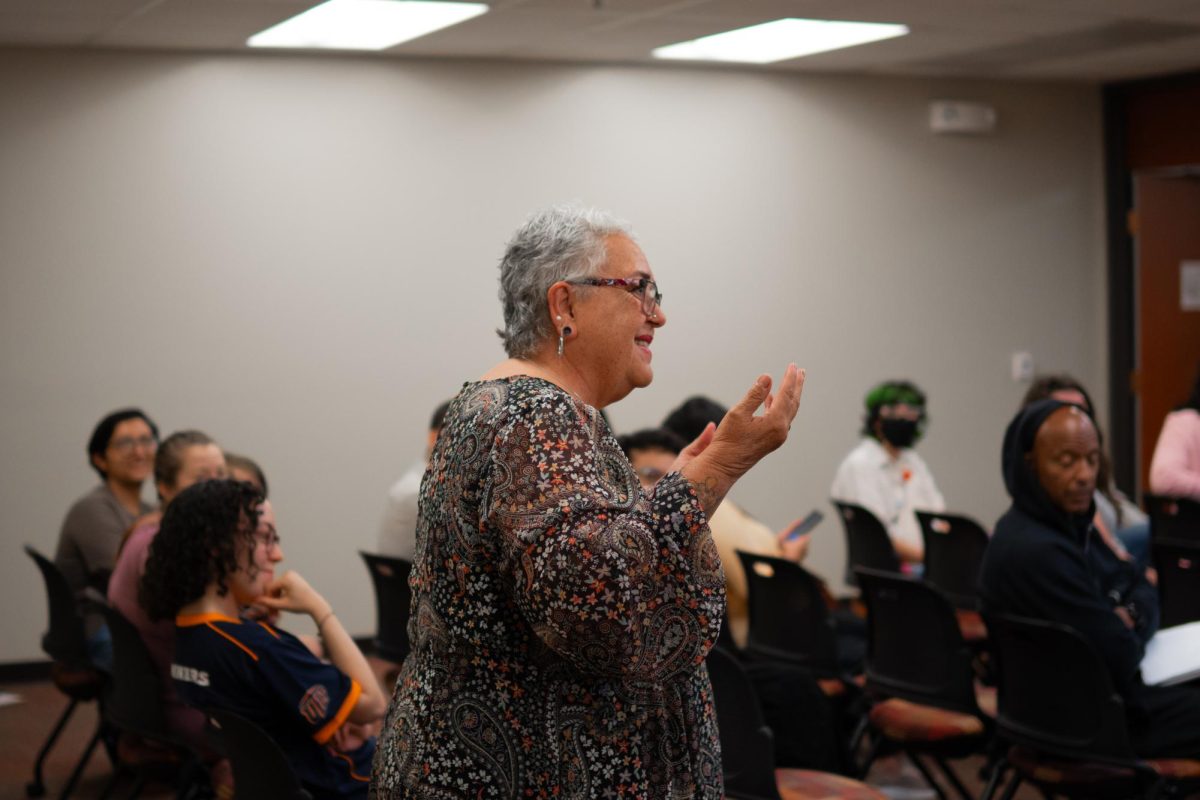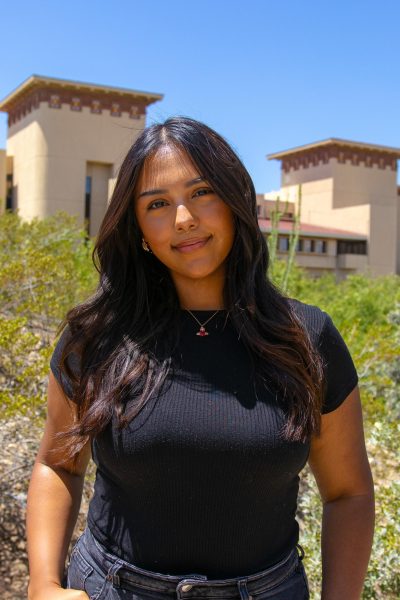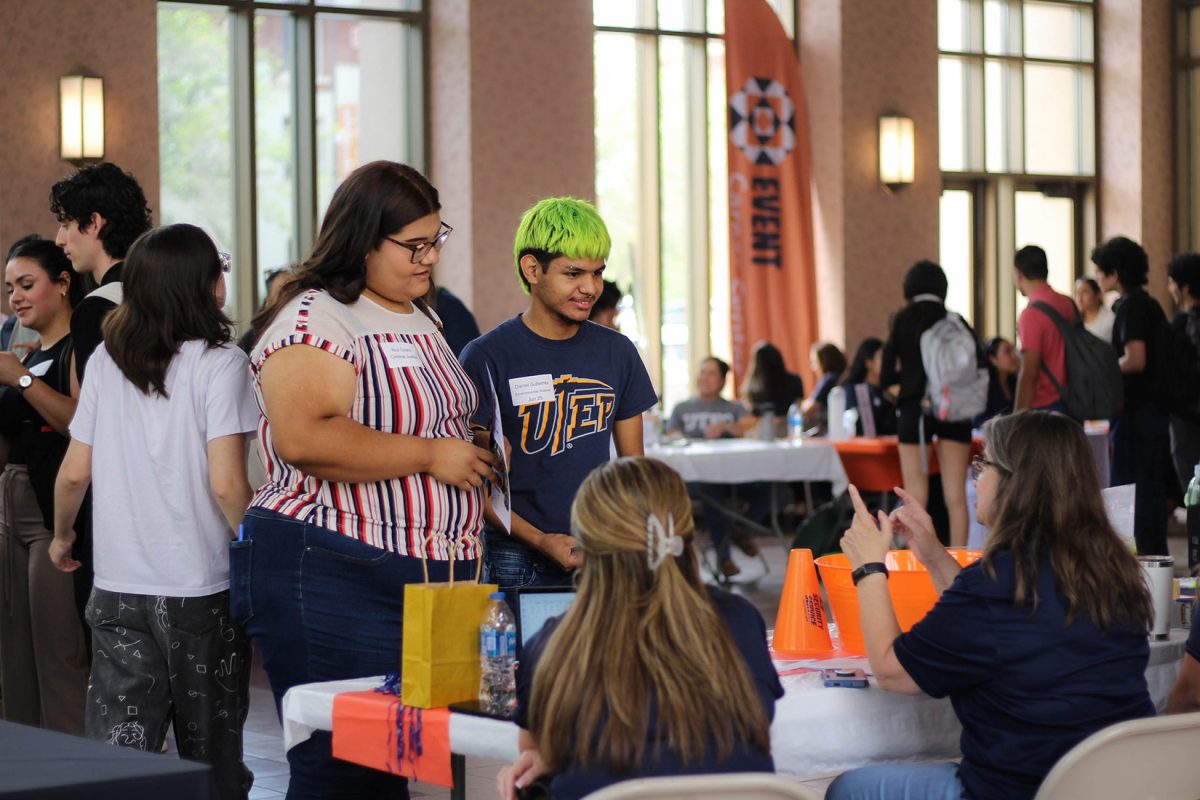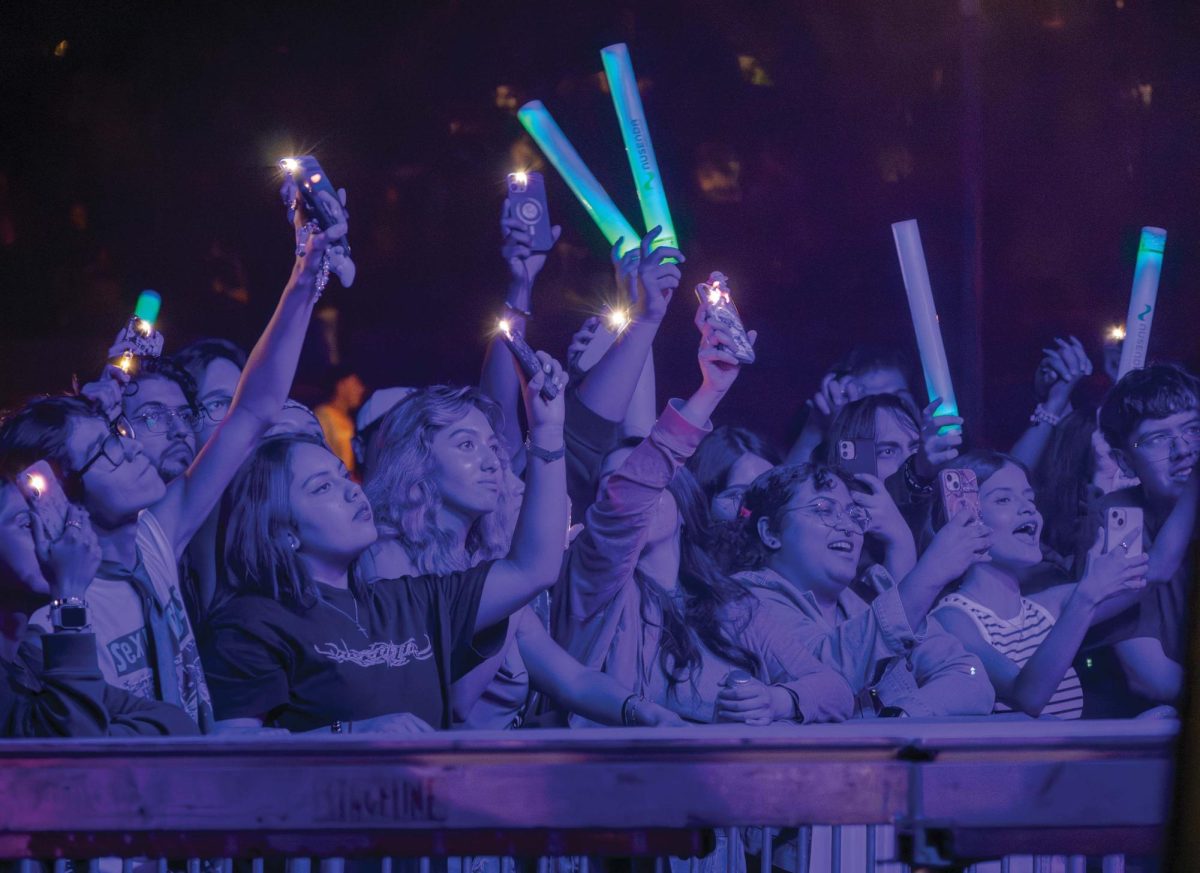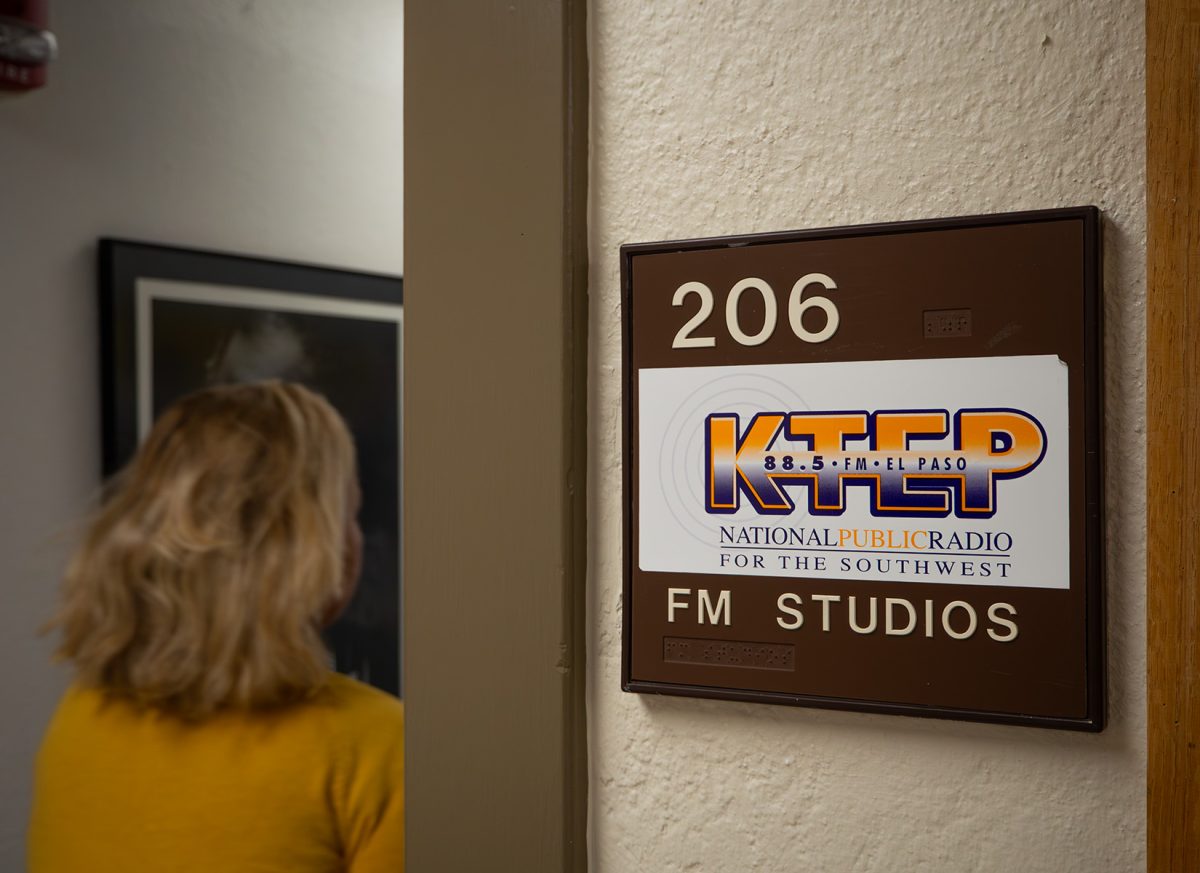On Tuesday, October 8th, the Student Engagement and Leadership Center hosted a Queer History Month panel at the University of Texas at El Paso featuring four educators and local artists who shared their experiences on navigating their “queerness” in both their personal and professional lives.
The panel served as a community discussion, with students, educators, and members of the public offering their own personal insights into the joys and complexities of living authentically.
“I think it’s super important to live authentically,” said Fish the Clown, an El Paso-based drag artist. “When you live authentically, you give permission for other people your age and younger people to also live authentically. You open that space up.”
After over ten years of experiencing gender dysphoria, Brooke Merritt, a professor of Health Sciences at UTEP shared that it wasn’t until this year that she decided to begin her transition.
Merritt explained how being invited to speak on the panel was a meaningful opportunity, coming at a time while still navigating the early stages of coming out publicly.
“It was just something I put aside, part of myself that I thought I’d deal with later—or if ever,” said Merritt. “It’s amazing because I’m very excited to be out, even though it’s still new for me.”
Christopher Medlin, a professor of pharmacy at UTEP explained how he had to unlearn the idea that being openly queer or gender non-conforming was incompatible with professional success.
“For a long time, I thought I had to keep my queerness behind the scenes, that nobody needed to know about it,” said Medlin. “But seeing pharmacists and leaders in my field come out boldly really changed my trajectory.”
The healthcare professional recounted how societal expectations kept him from being open in his career for years.
“Professionally, I was always told to keep that separate. It was, ‘You can be authentically yourself at home, but once you go into practice, especially as a healthcare professional, that doesn’t belong there,’” said Medlin.
Medlin shared that it wasn’t until a few years ago that he came out formally to his students, feeling like it wasn’t something he should keep behind the scenes any longer. He attributed his decision to come out in his professional life to the courage of other leaders in their field, who showed him that it was possible to be both professional and true to yourself.
Jose Montoya, a visual artist and panelist, shared how tapping into his authentic self-had shaped both his personal and professional life.
“I think to be more of my authentic self, I learned to just tap into that femininity and not be scared of it,” Montoya said reflecting on how embracing aspects of his identity that he had previously hidden led to more meaningful self-expression. “You can see it in my art, you can see it in my way of being.”
The panel then invited the audience to join in on the conversation, encouraging them to share their personal experiences, insights, or any thoughts they felt inspired to contribute.
One audience member, a freshman at UTEP who had recently moved to El Paso from a deeply conservative Latin American country, shared her journey of learning to embrace her identity after growing up in an environment that in many ways, forced her to keep that part of herself hidden.
For her safety, the student requested her name not be included.
“I come from a country that’s not Mexico, but it’s still Latin America. It’s a very conservative country—there’s no space for being queer,” she said.
The student described growing up in a place where there was little to no representation of anything outside cisgender, heterosexual norms.
“I always saw something in both genders, but since these are very conservative countries, there’s not really people who openly identify as anything other than straight, being man or woman, and they’re usually cisgender.”
She recalled her internal conflict during her early years, feeling ashamed of her feelings for girls while being able to openly express attraction to boys.
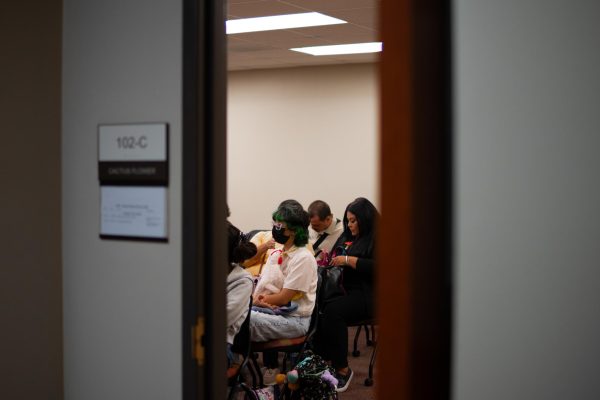
“I kept that part of myself hidden, and I was kind of disgusted because I was like, ‘I cannot be liking a girl,’” she said, adding that it was hard to deal with the isolation of being unable to share those feelings with anyone.
This began to change when she met her best friend, who is also queer.
“We have each other’s back, and we still do,” she explained, speaking about how important their friendship was in a country where queer identities are still met with hostility.
Moving to El Paso, the student shared that the city allowed her to begin exploring her identity in ways that were not possible in her home country. “I found myself with a new capability of expressing myself,” she said, though the transition to a more open environment came with its own challenges. “Honestly, I’ve been scared to be out—it’s not that easy. At the same time, I’ve been happy because I can finally say I like all types of genders, and I’m happy with that. I’m happy with who I am.”
The discussion also touched on the experiences of marginalized groups that face barriers in concealing or downplaying their identities, including racial and ethnic minorities or people with disabilities.
“A lot of us have the ability to hide parts of ourselves if we want to, and I think part of that comes with privilege,” said Medlin. “But it also comes with a burden, because we’re constantly seeking both physical and psychological safety, trying to be ourselves in places that may not accept us.”
As Queer History Month continues at UTEP, the voices on this panel serve as an inspiring reminder of the power that comes from owning one’s identity and, in turn, opens doors for others to do the same.
“It’s not just about who I am as a person,” said Medlin. “It’s also about providing support to other people.”
By sharing their stories, the panelists offered a powerful message: that authenticity is not just a personal act of liberation, but an inspiration for others seeking the courage to do the same.
Rumi Sevilla is a staff reporter for The Prospector and may be reached at [email protected]

